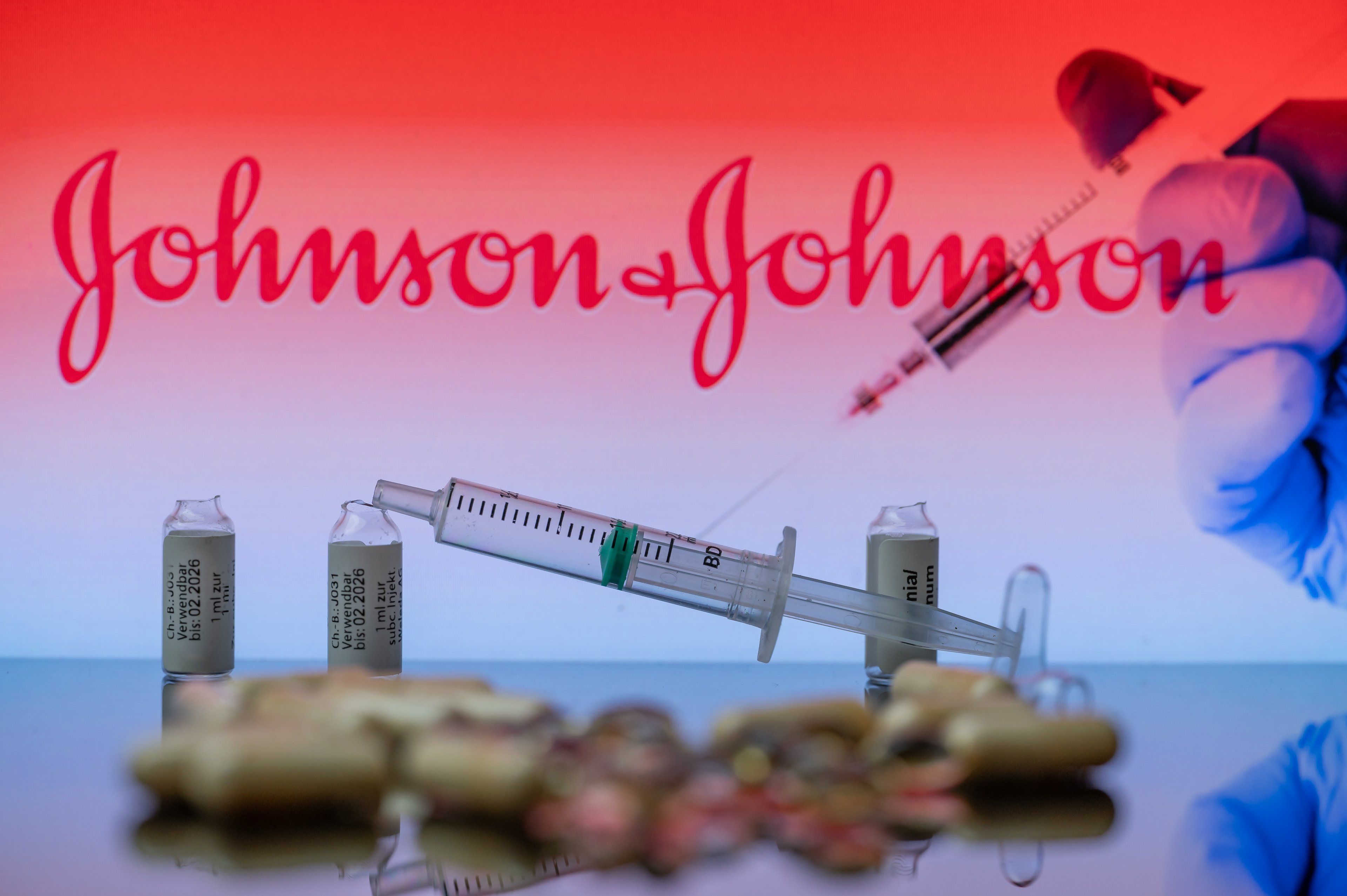
Image source: Flickr user Phil Roeder.
In a surprise verdict, a Missouri court on Tuesday found healthcare conglomerate Johnson & Johnson (JNJ 0.41%) liable for fraud, negligence, and conspiracy in a civil suit brought by the now-deceased Jackie Fox. The suit is actually part of a broad claim in the St. Louis Circuit Court that involves nearly five-dozen plaintiffs.
The case was filed on allegations that Fox (and other plaintiffs) developed cancer because of chemicals found in some of Johnson & Johnson's consumer products containing talcum, such as its baby powder and Shower to Shower feminine hygiene powder (Shower to Shower is now a brand owned by Valeant Pharmaceuticals, although this company is not a defendant in this case). Fox wound up passing away due to ovarian cancer at age 62, three years after being diagnosed with the disease, and claimed to have used J&J's consumer products for the better part of 35 years.
In 2012, Johnson & Johnson agreed, after ongoing calls for action from select activist groups, to remove 1,4-dioxane and formaldehyde from its consumer healthcare products since they are considered "probable human carcinogens." J&J officially completed the removal of these ingredients in 2015.

Image source: Pixabay.
The Missouri court ruled in favor of Fox, with the jury awarding $10 million in actual damages and an additional $62 million in punitive damages, for a grand total of $72 million. This amount is particularly eye-opening considering that more than 1,200 similar cases are pending across the nation according to the Associated Press.
For its part, Johnson & Johnson is expected to appeal to a higher court to overturn the decision or get the amount awarded reduced. It's not uncommon to see inflated punitive damages lowered substantially in a higher court, so J&J has history on its side in this aspect.
By a similar token, as reported by Reuters, a federal jury in South Dakota found that J&J's baby powder products were a factor in the development of ovarian cancer for a plaintiff in 2013, but the jury awarded no damages per the court records. This further suggests a reduction in damages awarded is likely.
One important thing to remember about this verdict
On the surface this wasn't a banner day for Johnson & Johnson. No company wants to be associated with negligence or a link to ovarian cancer. However, there's something important that investors should keep in mind here: J&J's had its image dinged before, and it's come out stronger on the other side.
Consumers, in general, have a fairly short memory span when it comes to product scandals. This should swing the pendulum in J&J's favor within a relatively short period of time if it can put this verdict, and potentially other verdicts, in the rearview mirror.

Image source: Tylenol.
For example, in 2015 a subsidiary of J&J's that's responsible for making over-the-counter liquid children's medicines, including children's Tylenol and Motrin, agreed to pay $25 million for particles found in the liquid medicine solution. An investigation by the Food and Drug Administration found that the OTC liquid medicines weren't being manufactured according to best practices, and that McNeil-PPC, the aforementioned subsidiary of J&J, didn't initiate corrective action after receiving complaints about particles from consumers.
How has Tylenol fared since? Despite the monetary settlement conjuring those bad memories of J&J's recalls in 2009, Johnson & Johnson cited strong sales in Tylenol as the reason why its consumer healthcare segment performed so well in the fourth-quarter. Although J&J doesn't break down individual consumer healthcare product sales, Tylenol remains one of the strongest OTC medicines.
Need more proof? In 2013, Johnson & Johnson agreed to one of the largest settlements in history. The company agreed to $2.2 billion in civil and criminal penalties for promoting the off-label use of anti-psychotic drug Risperdal, and for kickbacks paid to OmniCare, a pharmacy that specializes in dispending medicines to nursing home patients, between 1999 and 2005. Since agreeing to the settlement, shares of J&J are up a dividend-adjusted 21%, which appears to imply that investors have put these events in the rearview mirror.

Image source: Pixabay.
J&J's peers have overcome large settlements fairly quickly as well. In 2009, Pfizer (PFE 0.93%) agreed to the largest healthcare fraud settlement in history, $2.3 billion, for illegally marketing painkiller Bextra for off-label uses. The drug has since been pulled from pharmacy shelves. Regulators claimed the activity had been ongoing since 2002. Despite paying this whopper of a fine and taking a public roasting, Pfizer's stock has gained a dividend-adjusted 135% since the settlement was announced.
In other words, while legal losses aren't optimal (and let's not even get into the human concern of damage done to the plaintiffs), they're far from the end of the world for Big Pharma as far as finances go. Johnson and Johnson is especially well-diversified since it's comprised of more than 250 subsidiaries, so problems with a single subsidiary or a small handful of products appear unlikely to damage its bottom-line or permanently tarnish its reputation. If you believed in the J&J investing thesis prior to the Missouri courts' ruling, then you should still believe in the company's investing thesis today.







